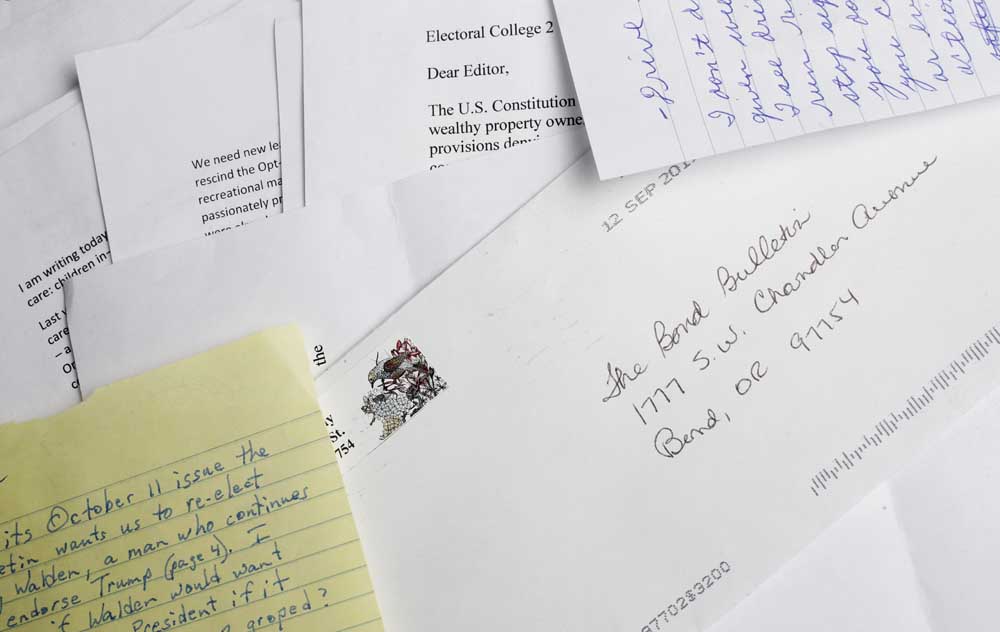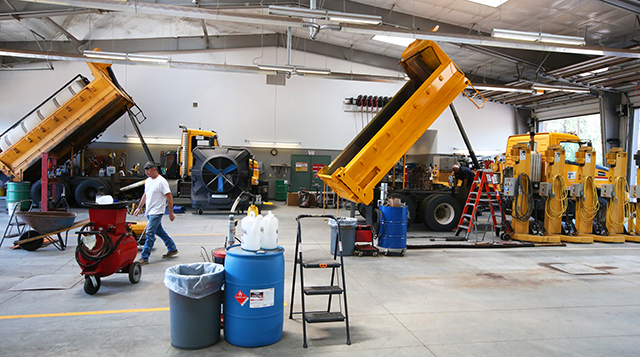Letters: Neighborhood associations; exceptionalism and sickness; sheriff’s bias on pot
Published 12:00 am Sunday, February 4, 2018

- (Joe Kline/Bulletin photo)
Sheriff shows radical bias against marijuana
In the wake of the Trump administration, it is clear our democracy cannot function well without credible public officials. Trust creates working relationships, and honest relationships are the building blocks of a healthy democracy. We as citizens of Deschutes County trust and depend on our elected officials to defend and protect the laws, privileges and rights for which we have successfully voted. We trust our public policies are directly connected to the voters’ mandate, not personal beliefs or the wishes of a fringe minority.
Trending
On Jan. 23, our Sheriff Shane Nelson broke that trust. His impassioned diatribe against legal cannabis cultivation, by requesting the county deny all future cannabis grow applications, is a radical and extreme departure from the mandate of the voters of Oregon and Deschutes County.
Who does our sheriff represent? Can citizens of Deschutes County trust our sheriff to fairly protect and defend our growers’ rights after witnessing such a conspicuous bias against cannabis? Will our county leadership now fall into the trap of supporting Nelson’s extreme agenda? Nelson has made his choice to align himself with our federal Attorney General Jeff Sessions, (“good people don’t smoke pot”), rather than the majority of Deschutes County voters.
I sincerely hope our county commissioners do not take the bait. He and his extreme base are ill-informed, and his agenda is contrary to the best interests of Deschutes County. Demonizing the legal cultivation of cannabis is an extreme agenda no longer supported by Oregonians.
Dirk Van Houweling
Bend
Exceptionalism won’t keep us from getting sick
Trending
In light of the current, serious flu epidemic, Paul deWitt’s Jan, 21 column seems very ill-timed. American exceptionalism is not keeping lots of Americans from getting sick and in need of medical care. And, unless those Americans are exceptionally rich, that health care needs to be managed by some entity to contain costs, as the governments of many Western countries with better standards of living than ours do for their citizens. DeWitt surely does not mean to imply that American exceptionalism will keep us from getting sick or that, if you have the temerity to get sick, you are not a true American.
And why is managed health care considered socialistic? We don’t consider other governmental services like police, fire, public education and emergency rooms to be socialistic. We pay our taxes and accept those services as part of the general welfare for all of us. We have organized ourselves into a society where individuals don’t make their own rules at the expense of their neighbors. Is that socialistic or merely civilized?
If Americans are truly exceptional, and live by Judeo-Christian principles, etc., etc., then we should all practice the Golden Rule rather than the law of the jungle.
That means organizing, probably through government since we’re not doing it by ourselves, to take care of each other, in sickness and in health.
Robert Hickman
Sunriver
Associations could find and support candidates
This letter is in response to Julia Shumway’s article on Jan. 19 about neighborhood associations seeking permission from the City Council to form the Neighborhood Leadership Alliance. The purpose would be advising the City Council on livability issues in Bend.
This approach certainly has merit, but may I suggest that grassroots political activism of the neighborhood associations could lead to a better City Council representing the citizens of Bend. The neighborhood associations should work to find candidates for the City Council in each election cycle. After discussions, they should find a way to endorse candidates.
It should not stop there. Members of the associations should help in fundraising and advertising. Campaigning in the neighborhoods should be embraced by the citizens. It is a wonderful way to meet one’s neighbors. The political process requires more attention by the neighborhood associations. After a neighborhood association backs a candidate, efforts should be taken to seek endorsement by civic groups, e.g. the Latino Community Association and League of Women Voters. Grassroots political activism by neighborhood associations can make Bend better, stronger and enhance livability that is sought.
Edwin Kirsch
Bend








